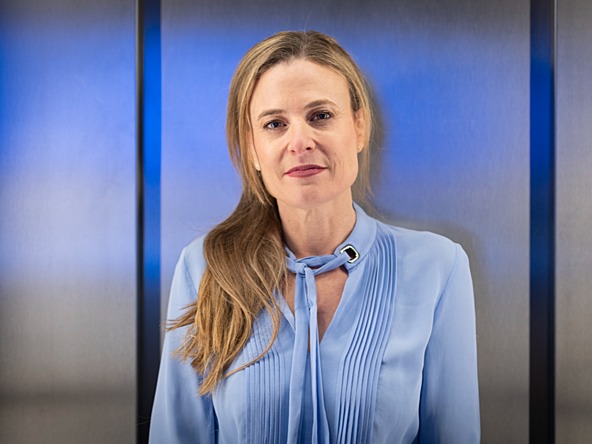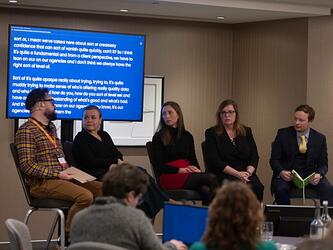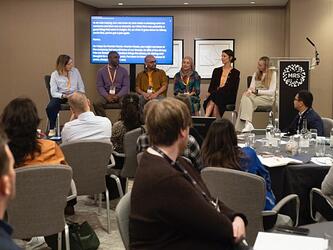Tali Sharot: Knowing how the brain works can help change minds

Sharot, professor of cognitive neuroscience and director at the Affective Brain Lab at University College London, told the conference, held in London on 11th March, that while data is important as a means of influencing decision-making, more focus needed to be on how people’s brains respond to information.
“One tool we have is data. But sometimes we can forget that every number, line and trend represents the decisions of many individual humans, or to be more precise, decisions made by the headquarters of these humans, which is the brain,” Sharot said.
“So, in order to really understand the data, be able to use it and to change minds, we want to know a little bit about how the brain works.”
Sharot said that data can sometimes not be very effective at changing people’s minds: “Data is especially weak under certain circumstances. First is when time is short, you have a short time to make your point or to take in the information.”
Emotion and storytelling can be more effective, Sharot added: “A story often elicits emotion. Then, what emotion does is cause us to pay attention – a signal in the brain telling us this is important, it is an alert sign to pay attention. It also makes it more likely that we can recall information at a later time.
“We are still, to some extent, very good at learning quickly from a story – we evolved to do so.”
Data tends to be weaker when trying to change someone’s beliefs when they already have a contradicting opinion, Sharot told the audience, highlighting the effects of confirmation bias.
She said that data from the brain supports the idea that people respond very positively to those who agree with them, whereas disagreement has much less of an impact.
Sharot also said that when debating people who have opposing views on a subject, it is best to start with something both sides agree on “as the person in front of us is more likely to then take in the information”.
For example, when trying to change intentions on whether or not to vaccinate children, scientists demonstrated that showing that vaccines were good at protecting children from disease was more likely to persuade parents opposed to vaccines to change their mind as opposed to use techniques that criticise anti-vaccine beliefs more directly.
People can also disregard bad news in favour of more positive information, Sharot said. “We have data that suggests that the brain is more likely to take in information that highlights the opportunity for progress rather than focus on decline,” she explained.
“People learn less when the information is worse than they expected than when the information was better than they expected. This means we need to reframe our message by highlighting the opportunity for progress rather than decline.”
The brain’s emotional state also has a big impact, especially stress. “Stress really changes the way our brain works and it changes the way we take in information,” Sharot said. “What it does is cause us to focus on the negative information.”

We hope you enjoyed this article.
Research Live is published by MRS.
The Market Research Society (MRS) exists to promote and protect the research sector, showcasing how research delivers impact for businesses and government.
Members of MRS enjoy many benefits including tailoured policy guidance, discounts on training and conferences, and access to member-only content.
For example, there's an archive of winning case studies from over a decade of MRS Awards.
Find out more about the benefits of joining MRS here.














0 Comments